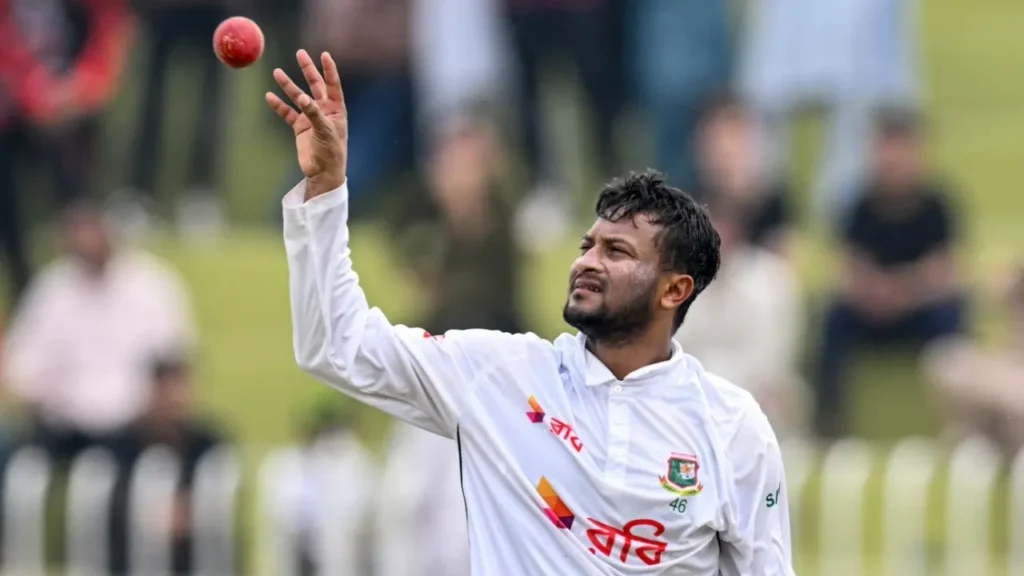Shakib Al Hasan is celebrated as Bangladesh’s greatest cricketer, a hero to fans across the country, and a name deeply embedded in the sport’s history. However, recent events have reshaped his image, turning him from a national icon into a controversial figure due to his association with politics. This is a look into Shakib’s journey, his achievements, and how his political decisions have affected his legacy.
Shakib’s Rise to Fame and Cricketing Legacy
Shakib’s journey to stardom began on October 18, 2008, in Chattogram. In a Test match against New Zealand, he took seven wickets for just 36 runs—setting a national record at the time. Over the years, Shakib’s contributions have been vital to Bangladesh’s cricketing milestones, including their first overseas Test series win in 2009, a victory in their 100th Test match, and crucial wins against powerhouses like Australia and England.
In 2016, Shakib’s remarkable spell against England sealed Bangladesh’s historic win in Dhaka. And recently, his role was instrumental in Bangladesh’s first-ever Test victory over Pakistan. These moments highlight Shakib’s unmatched impact on Bangladesh cricket.
The Shift from Cricket to Politics
While Shakib’s cricketing achievements are numerous, his entry into politics was unexpected. Shakib became associated with the Awami League, a political party, despite his busy cricketing career and his residence in New York. He would return to Bangladesh for matches and brand endorsements but spent most of his time abroad.
In 2024, Shakib officially won a seat in the Bangladeshi elections, aligning with the Awami League. This shift to politics, however, did not sit well with many fans. After significant political unrest in Bangladesh, people began to question his decision, feeling that his involvement represented a betrayal of his role as a sports hero. Protests erupted, with students camped outside the Shere Bangla National Stadium, calling for his removal from the national team.
Controversies and Public Reactions
Shakib’s absence during key moments of unrest further fueled the backlash. During a match in Canada, Bangladeshi fans even booed him—a first in his career. This reaction marked a shift from adoration to criticism, with people questioning his loyalty to his fans and country.
The controversy intensified when Shakib was linked to an alleged crime back in Bangladesh. He issued a public apology, but the gesture was met with mixed responses. While some accepted his apology, others felt it was insufficient and continued to protest his presence on the team.
Shakib’s Uncertain Future in Cricket
As of now, Shakib’s future with Bangladesh cricket is uncertain. He may have played his last Test match, with only a limited-over format career remaining. However, his decision to opt out of recent series raises doubts about his plans to continue until the 2025 Champions Trophy.
The story of Shakib Al Hasan’s fall from cricketing hero to a controversial public figure is a complex one. While he remains Bangladesh’s best cricketer, the public’s view has shifted. Shakib’s legacy is now a blend of pride and controversy—an example of how politics and sports can intertwine, shaping the way fans see their heroes.


